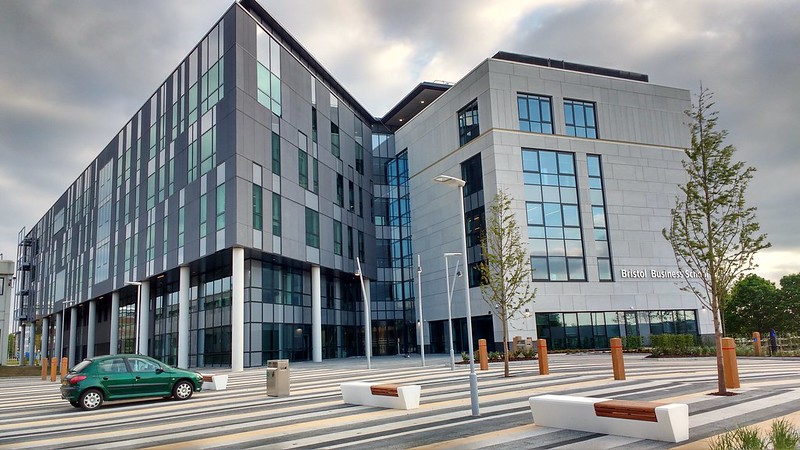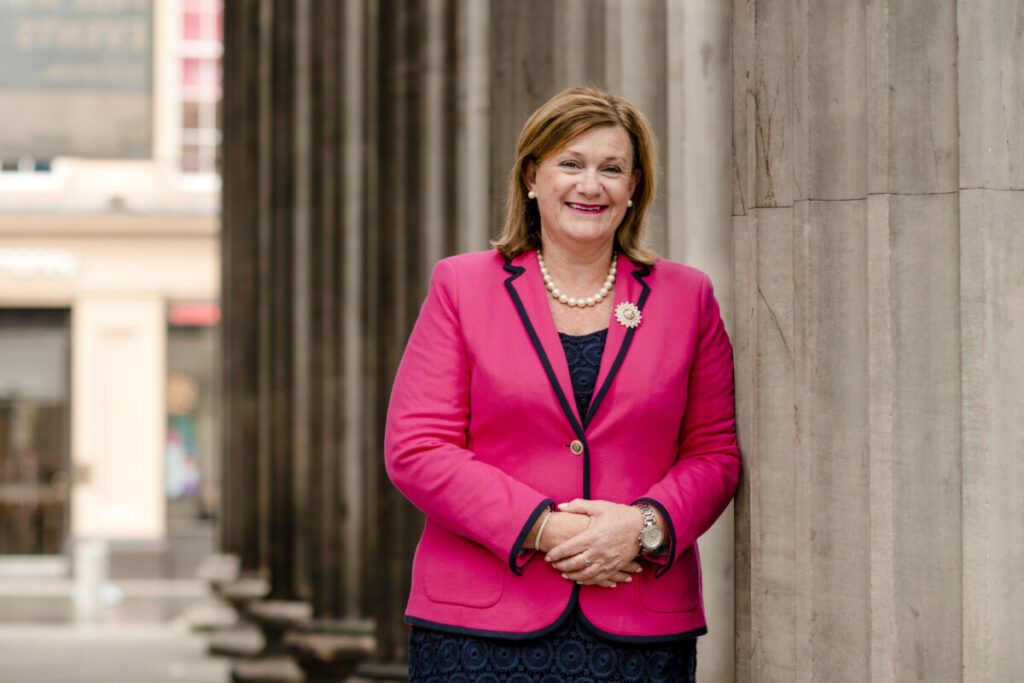Tsunami or consistent turbulence: in a post-Brexit and pandemic world what is needed from HE’s institutional leadership to give philanthropy and external engagement its rightful place?
It is now more than thirty years since universities in the UK began to build their professional development and external relations infrastructures in a serious way. The demands placed on institutional leaders have increased and the expectations placed on them are very different today. We still often look across the pond to the USA, but also increasingly Australia, to gauge the trends and roles of those leading fundraising and incomes generation in HE.
Fundraisers leading universities?
Some years ago, a Vice-Chancellor said that we won’t see fundraisers leading universities in the UK, but today, we see a number of fundraisers and other advancement professionals sitting at the leadership table, with the Pro-Vice-Chancellor title or similar status, but this trend needs to speed up, if we are to see fundraising playing an increased
and more impactful role in our universities. Fundraising – and all that goes with it – needs to be more strategically positioned – to engage the most senior people in an institution and we need to think about the implications for those at the top and what we need of them.
The title ‘President’ has also been creeping into the job titles of our university leaders, as their roles develop to become more externally facing, their activities do become more ‘presidential’. Most, but not all, UK university leaders have reached the top position following successful academic careers. Increasingly, though, institutions require their leaders to be their external champions and shift in focus is required.
In a post Brexit, and soon to be post-pandemic, environment how does the role of the Vice-Chancellor evolve to address the multiple financial challenges and needs of their institutions? How do they build a future-proof leadership team around them that will have an increasing externally focussed lens? Is it time for a shake-up at the top where the person leading the University “presidentially” must provide transformative leadership utilising the
expansive network of alumni and donors to drive and sustain success?
Throughout the pandemic at Cairney & Company we have been engaging with university leaders across a wide range of institutions including the universities of Glasgow, University College London, Central Lancashire and the West of England.
Vice-Chancellors see their roles changing
Throughout our discussions, we have been struck by a number of common factors; Vice-Chancellors are seeing their roles changing, with a greater focus on external (ambassadorial) activity, amplified during the Pandemic, as they are travelling less and spending more time on-line. A renewed recognition of the value of their largest external
stakeholder group, alumni, and the institutional role they can play in elevating the brand, participating in recruitment, supporting the student experience through mentoring and internships as well as in many cases being donors as well.

Professor Sir Anton Muscatelli – Principal and Vice-Chancellor of the University of Glasgow, understands both the importance and potential of philanthropy and engagement to advance the mission of his university, with a seat at the top table to Rachel Sandison, their VP of External Relations and a restructure of their development team under the leadership of Fran Shepherd. Glasgow is determined to supercharge their external and philanthropic ambitions to support the creation and distribution of knowledge that is – to quote their increasingly recognised brand – world changing.

Similarly, Professor Michael Arthur, recently retired Provost and President of University College London, understands how fundraising works, recently completing a £600 million campaign. One of the key decisions that Professor Arthur took was to position his advancement professional leader – the late Dr Lori Houlihan – at the top table of his administrative structure, as Vice-Provost for Advancement. This was a significant step for UCL, but also for the wider higher education sector. Professor Arthur acknowledges that the partnership between him and Dr Houlihan was crucial to the success that UCL enjoyed with its recent campaign. However, Professor Arthur also understands the many conflicting demands that a university makes on its leaders and so in order to move forward and build the investment needed to support growth, fundraisers must have an eye on the bottom line, “Nothing speaks louder than money’, he said.
Universities have had a hugely challenging year; they have seen income from sources such as international student recruitment severely impacted. Covid’s impact on the student experience, the emotional wellbeing of staff and students amplified and are now looking to re-build their institutions, in a world where we are yet to fully understand the impact in areas such as research income and student fees.
Success breeds success, but it does not happen by accident
The annual CASE Ross Report, capturing investment and income from alumni engagement and fundraising, continues to demonstrate that those institutions with the highest existing profile, status and research history are among those which raise the most. However, these are also the institutions which invest the most in the processes that support this success and have done so consistently over recent decades. While success breeds success, it does not happen by accident.

Meanwhile, the inspiring Cairney Conversation with Professor Steve West, Vice-Chancellor and CEO of the University of the West of England turned the focus away from just the numbers of how much UWE raises, to consider the role that philanthropy could play at his university as part of an integrated approach to achieving socially impactful institutional priorities. It was all about the role of UWE in the community and how that could be extended by taking a different approach to income-generation and with a clear understanding that his own role would potentially change and become less internally focused.
Similarly, at the University of Central Lancashire (UCLan), Professor Graham Baldwin became Vice-Chancellor in 2019 and set about reinforcing UCLan’s mission as a ‘global university and local champion with a can-do attitude.’ Professor Baldwin acknowledges that the University’s approach to external engagement was not all that it could be, ‘It’s true we’re under-formed in our alumni work. There’s a long way to go but it’s vitally important.’
Professor Baldwin is one of a growing number of Vice-Chancellors who acknowledge that their role in driving philanthropic growth and the cultures and activities that support it, is important. “My role is to get fully behind fundraising”, he says.
Two roles?
However, for this really to happen, the job descriptions of many university leaders in the UK must change. They cannot both be the ‘Principal Professor,’ and the ‘Chief Advancement Officer’.
So, we see a trend towards a more ‘presidential’ model. Universities are increasingly globally-focused and the title Vice-Chancellor is less well understood internationally – especially in the USA, but it also recognises that institutional leaders must become more externally focused and engaged. As the need for diversification in income generation grows, our university leaders must develop the skills, mindsets and ambitions to be able to perfect
their ability to translate the needs of an institution into a dialogue that meets the needs of its external stakeholders – investors, partners and donors – in both the public and private sectors.
A change in leadership model is needed…
As institutions look to the future and to post-pandemic recovery, now is the time to consider how university’s think more externally and act to build deeper partnerships with their stakeholders. The alumni body of any university is by far the largest group of individuals that it has a relationship with. Yet, the time and investment made in this huge and important group can be staggeringly small, compared to the investment made up front to attract them to the institution in the first place. We hear a lot about the student journey but it is still too heavily weighted towards the beginning of the students’ journey, getting them over the institutional threshold. In our work we see so many universities, then having to spend an inordinate amount of time and resources trying to re-engage with alumni once they have graduated. We often hear that building a cradle to grave continuum is of great importance to an institution’s strategy. However, this often does not translate into strategy or resources.
… and in coordination to maximise income generation
There is not only a shift in the leadership model needed, but also in how institutions ensure the greatest co-ordination, leverage and impact with often limited resources and expertise to maximise the return on investment on income generation. A fundraiser may not start their day thinking about the ground-breaking research that will save lives or the teaching timetable to maximise the learning experience of students. Similarly, a lecturer may not start their day thinking about how to stay connected with their alumni or the pitch they are about to make to a major donor. However, the one thing everyone starts their day thinking about is how to best serve the institution they work for.
When we bring together the minds, passion, innovation, and creativity in a truly integrated model of thinking the benefits are experienced at all levels. A fully integrated model that is aligned to institutional strategy and supported by the leaderships provides the resources to fund critical infrastructure, consistent messaging of brand, better informed and actively engaged ambassadors and a stronger and more successful institution with eyes all focussed
on the same prize of making it the best it can be for everyone.
It has been said many times that fundraising is the servant of institutional strategy: it does not drive it and we need more institutional leaders who recognise the investment needed for long term success and then finding and keeping the right people to build the machine that will drive the programme forward. This is no longer a choice but an essential for future success and in some cases survival.

Karen Cairney is Founder and CEO of Cairney & Company, a global company of innovative and creative fundraisers, strategists, communicators, researchers, trainers and coaches, based in the UK, USA, Canada and Hong Kong.
from UK Fundraising https://ift.tt/3iwz8rj
0 comments:
Post a Comment